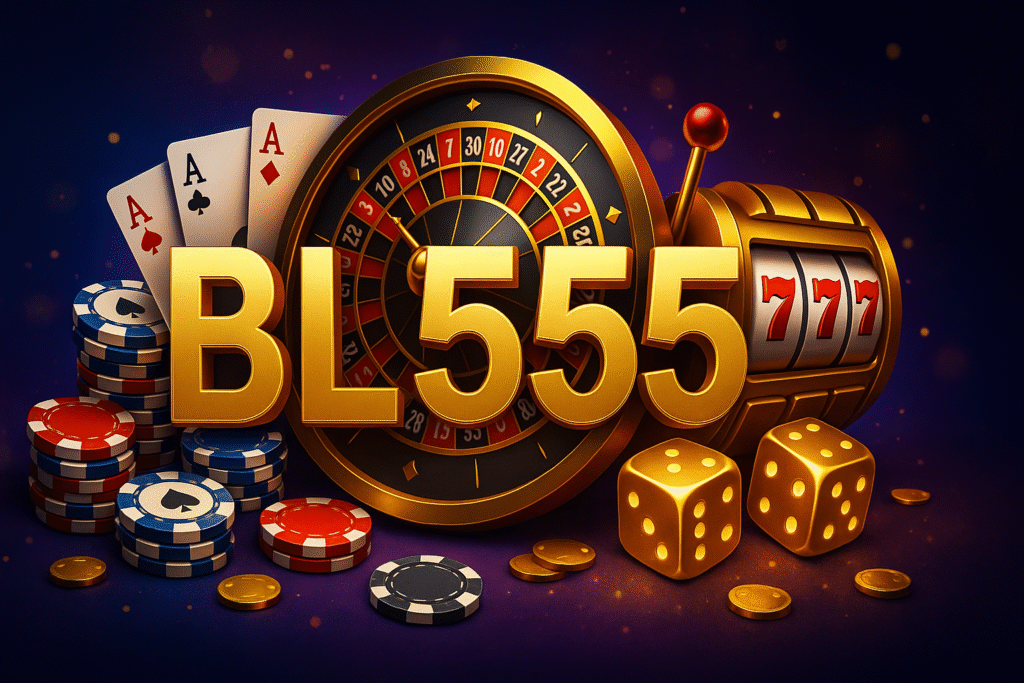
Modern online casinos such as Nhà cái BL555 have created experiences that are not only entertaining but also highly engaging. A major reason for this success lies in the psychology behind casino game design. Developers understand what keeps players interested and they use a range of techniques to enhance excitement motivation and satisfaction.
One of the key psychological elements in casino games is the use of reward systems. Games are designed to offer frequent small rewards to keep players feeling positive. Even when players do not win big they often receive small payouts or near wins. These experiences trigger the brain’s reward center and encourage continued play.
Sound and visuals also play a huge role. Bright colors flashing lights and exciting sounds all contribute to a stimulating environment. Slot games for example often use upbeat music and celebratory tones to create a sense of achievement. These effects are carefully crafted to build a positive emotional response even during minor outcomes.
Another psychological tool is randomness. While games are based on chance the randomness is structured to create patterns that feel meaningful. This is known as variable ratio reinforcement and it is the same principle used in other forms of entertainment like video games. Players do not know when the next win will come but the uncertainty adds excitement.
Progress tracking is another feature found in many online casino games. Whether it is a points meter a level system or a badge for achievements players are motivated by a sense of progression. These elements give players goals to work toward and a sense of accomplishment as they play more.
Social elements have also become more common in game design. Leaderboards tournaments and multiplayer options add a layer of competition and community. Players enjoy comparing their results with others and this social engagement adds depth to the experience. Feeling part of a group or competing for top rankings increases commitment to the game.
Personalization is another powerful tool. Many platforms now offer games that can be customized or recommend titles based on a player’s history. Personalized experiences make players feel valued and more connected to the platform. This individual attention strengthens loyalty and encourages longer sessions.
The concept of loss aversion also affects player behavior. Game designers understand that players tend to feel the pain of loss more than the pleasure of gain. As a result many games include safety nets such as second chance features or bonus rounds after losses. These elements reduce frustration and encourage players to keep going.
Time distortion is another interesting psychological effect in casinos. Engaging games make it easy to lose track of time. With no real-world clocks or cues players become fully immersed in the game. This is intentional as a deep focus on gameplay often leads to longer sessions and higher engagement.
Incentives like bonuses free spins and loyalty programs also leverage psychology. These rewards create a feeling of value and appreciation. Players are more likely to return to a site where they feel rewarded even if they do not win every session. Well-designed incentive programs foster a stronger relationship between the player and the casino.
The illusion of control is another subtle psychological trick. Games like blackjack or poker involve decisions that give players a sense of influence over the outcome. This feeling of control increases engagement even when the actual odds are still governed by chance. Players enjoy thinking they can outsmart the system which makes the game more intriguing.
Accessibility and simplicity are also key factors. Many successful games have intuitive controls and clear rules. This makes them easy for beginners to enjoy and ensures that players do not get frustrated early on. A smooth and inviting user experience helps retain players and makes them more likely to explore additional games.
In conclusion the success of online casino games is not just about luck or entertainment. It is also about smart design rooted in psychological principles. By understanding what motivates and engages players game developers create experiences that are both fun and compelling. This thoughtful approach keeps players coming back and helps define the future of digital gambling.